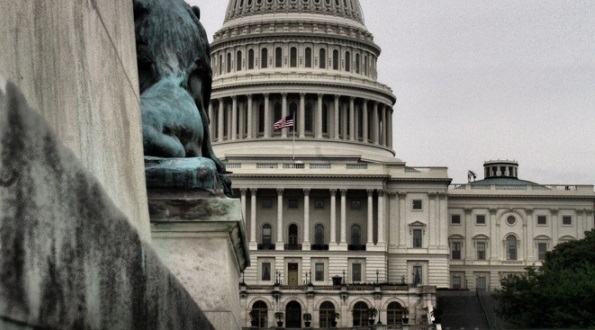BECOME A MEMBER
>JOIN
Conflicting Views on Nuclear Security in U.S. House Armed Services Committee

Earlier this month, the US House Armed Services Committee (HASC) released its version of the National Defense Authorization Act (NDDA) for Fiscal Year 2015. Nickolas Roth, research associate at the Project on Managing the Atom at the Harvard Kennedy School’s Belfer Center for Science and International Affairs, analyzed the bill with regard to nuclear security and explains why he thinks the proposals throughout the bill to block nuclear security cooperation are dangerous. Extracts from his article on the website Nuclear Security Matters.
Funding U.S. programs that enhance nuclear security has been a controversial issue this year in Congress. The House Armed Services Committee (HASC) recently released its version of the National Defense Authorization Act (NDAA) for Fiscal Year 2015. The results are a mixed bag on the nuclear security front. The committee proposes picking up some of the slack the Obama administration left for nonproliferation programs — increasing the administration’s request by $10 million overall — but it also slashed a key nuclear security effort and called for putting all nuclear security cooperation with Russia on hold. [...]
While the HASC committee report does acknowledge the importance of the nuclear security summit process, it appears to be conflicted on programs that actually strengthen nuclear security. For example, the HASC committee increased GTRI’s budget to “accelerate the clean-out and security upgrades in countries other than Russia.” GTRI’s ability to do so, however, would be profoundly affected by its inability to work with Russia, which is where much of the vulnerable nuclear material is sent for disposition.
The proposals throughout the bill to block nuclear security cooperation are dangerous, as they reflect a profoundly wrong view of these programs as favors the United States is giving to Russia, rather than investments in U.S. national security. There is urgent work to do to rebuild the broad base of bipartisan support that nuclear security efforts once had. [...]
Well-funded programs that facilitate cooperation to reduce the risk of nuclear terrorism are in the national interests of the United States, Russia, and the world. The situation in Ukraine does not change that fact. Stolen nuclear material is bad for everybody. Suspending cooperation because you are upset about an unrelated policy issue is, as my friend Kingston Reif has said, simply cutting off our nose to spite our face.
Nickolas Roth is a research associate at the Project on Managing the Atom at the Harvard Kennedy School’s Belfer Center for Science and International Affairs.
Photo courtesy of Ronald B.

